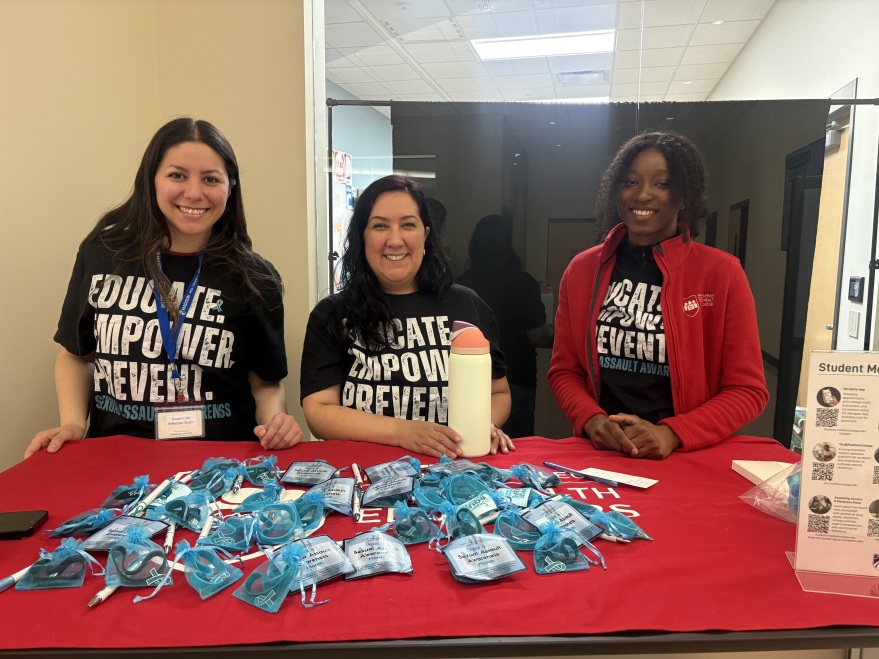Colleges strive to support diversity on campus
April 20, 2016
As college students, we understand the importance of incorporating and celebrating diversity on campus. At most colleges, students are invited to attend cultural potlucks, foreign music concerts, or ethnic dance performances at least once during their college experience. The issue we see plaguing colleges around the country is that the importance of diversity doesn’t extend beyond “food, fun, and festivities,” as expressed by Assistant Dean of Students and Director of the Multicultural Student Center (MSC) at UW-Madison, Joshua Johnson, in an interview last September.
A lot of universities don’t take it to the level of ‘now that you know about these people and you celebrate their culture, are you gonna partner with them and understand the issues that affect their community?’ It’s more than just eating their food and listening to their music,” Johnson said.
When the MSC took this thought into account and recognized how “basic” the celebrations were in eradicating prejudices on campus and truly celebrating diversity, a shift occurred when they swung into that direction, Johnson explained, excluding members of the campus who weren’t ready to be having critical discussions like that yet.
“Addressing racism is complex,” said Johnson. “And supporting students is complex, so we do need some food, fun and culture a little bit in order to get them here, and then when they’re here, we can then have those critical discussions.”
“We try to think about what students immediate needs are, and that is finding a community, to not feel isolated… do you have a support system here, do you have a place where you feel you belong?” asked Johnson.
New Vice President of Equity, Inclusion, and Community Engagement at Madison College, Lucia Nunez, is determined to asked those very same questions to Madison College students.
“The diversity is here,” she said. “What we do with it, and how we build it, and how we benefit from it is up to us.”
“I’ve gone to many campuses and there are so many roadblocks. At least this campus has done so much work to not only recognize what those obstacles and blocks are and create ways around them, through them, or eliminate them completely if need be, but also how to help people get over them,” she explained.
“We don’t give affirmation to students because we assume they already feel included,” Johnson explained. “ But this is out of touch with what people of color (POC) experience. The truth is that most don’t feel included here or like they belong. Most POC come here on scholarship, and many are getting full tuition to come here, so when you get to come here and have it paid for, you’re gonna stay. They have the mentality of ‘I’m here for my degree’.
The issue that many people of color on UW-Madison campuses face is that, “as much as you want to think that people are ignorant, some just don’t care about others experiences,” Johnson said. This has been apparent in many of the #theRealUW hate crimes occurring within the last few months, such as when a young woman was spat on in her dorm and called racial slurs, or when swastikas and photos of Hitler were posted on a Jewish student’s door.
Johnson continued to explain where some of the tension or prejudice is created: “Some think that international students come here and take US students spots, or that they are somehow using U.S. tax dollars to pay for their education. Do they know that international students pay almost three times as they do to come here… they actually supplement their education…We do have to rely on international student fees to help out Wisconsin residents. So most of it is ignorance that people are saying these things.”
Racism can be apparent through a variety of ways, including full on hate crimes such as the swastika incident, or in lesser recognizable ways through micro-aggressions or micro-insults.
“There is definitely the micro-insults where people don’t even know that they are being ignorant,” said Johnson.
“It makes international students feel very unwelcome, such as times where they can’t understand their English or assume they can’t speak English so they make international students feel bad. Even differences in cultural norms, foods that people eat, or clothes that people wear that they abnormalize people who aren’t part of U.S., European descent culture.”
While the voices of Blacks and Latinos are become roaringly louder as more power and respect is given to those demanding it, there is a minority group whose struggles often go unnoticed, Johnson explained.
“That happens a lot to our Asian Pacific Islander (API) students. Many severe issues, faced by Black and Latinos, too, but API is invisible because it might not look like police brutality, but instead it’s always kind of this perpetual foreigner idea. So, even if you’re born and raised here, no matter how long your family has been here, if you’re of Asian descent, you’re never really an American citizen. This mentality isolates a lot of our Asian American students,” Johnson explained.
Madison College strives to eradicate any of these forms of oppression or marginalization against students of color. Vice President Nunez explained that the first steps include assessing the racial climate on campus, creating a plan, and utilizing the input of both faculty as well as students.
“We don’t know how to talk about difficult issues,” Nunez explained.
“We don’t want to talk about race issues. We tiptoe a lot in this community, and the tiptoeing occurs around race and any of the -isms. We’re not very good about talking about things, so we are figuring out how do we do that and be educated about these issues, and then that way we can say, well here is how we’re gonna change some things.”






























